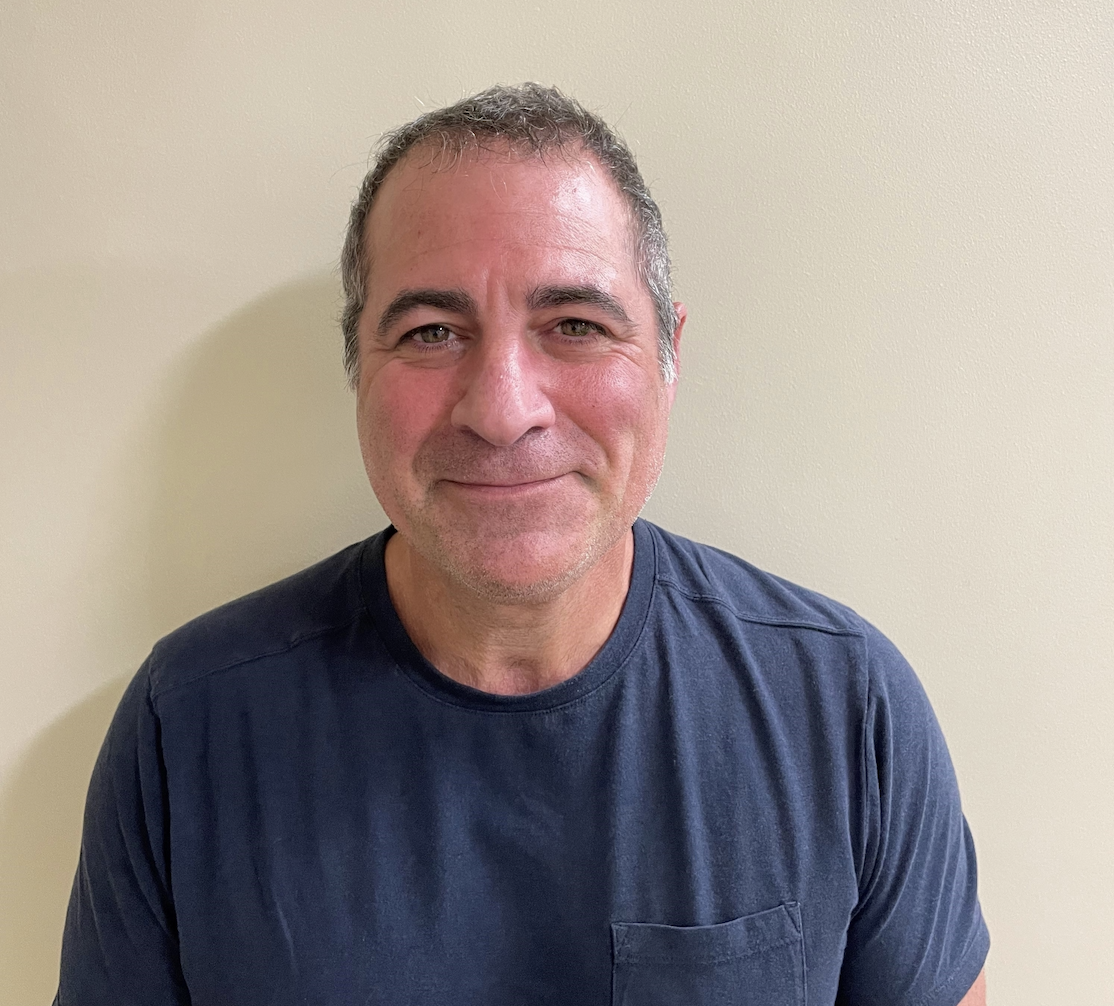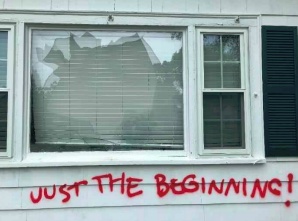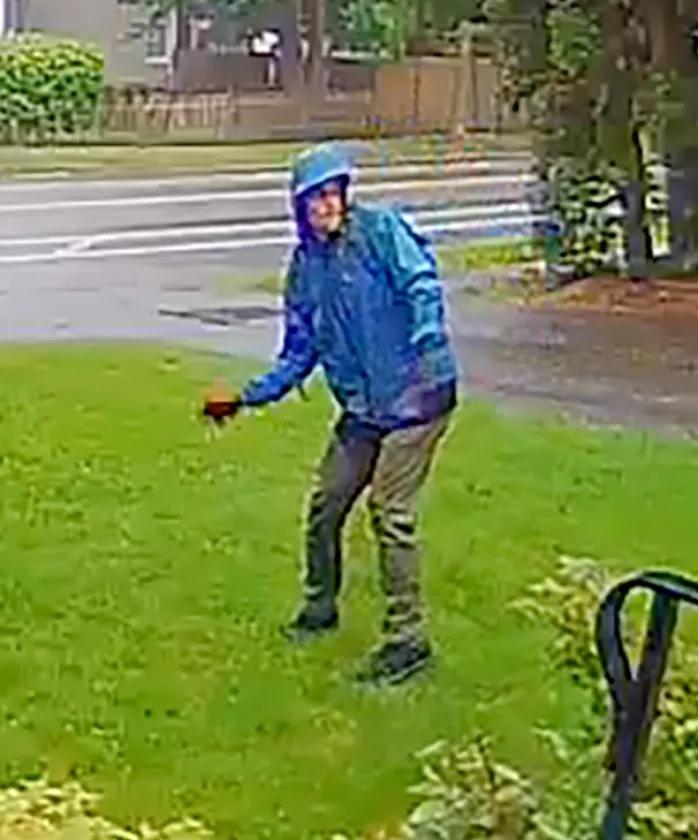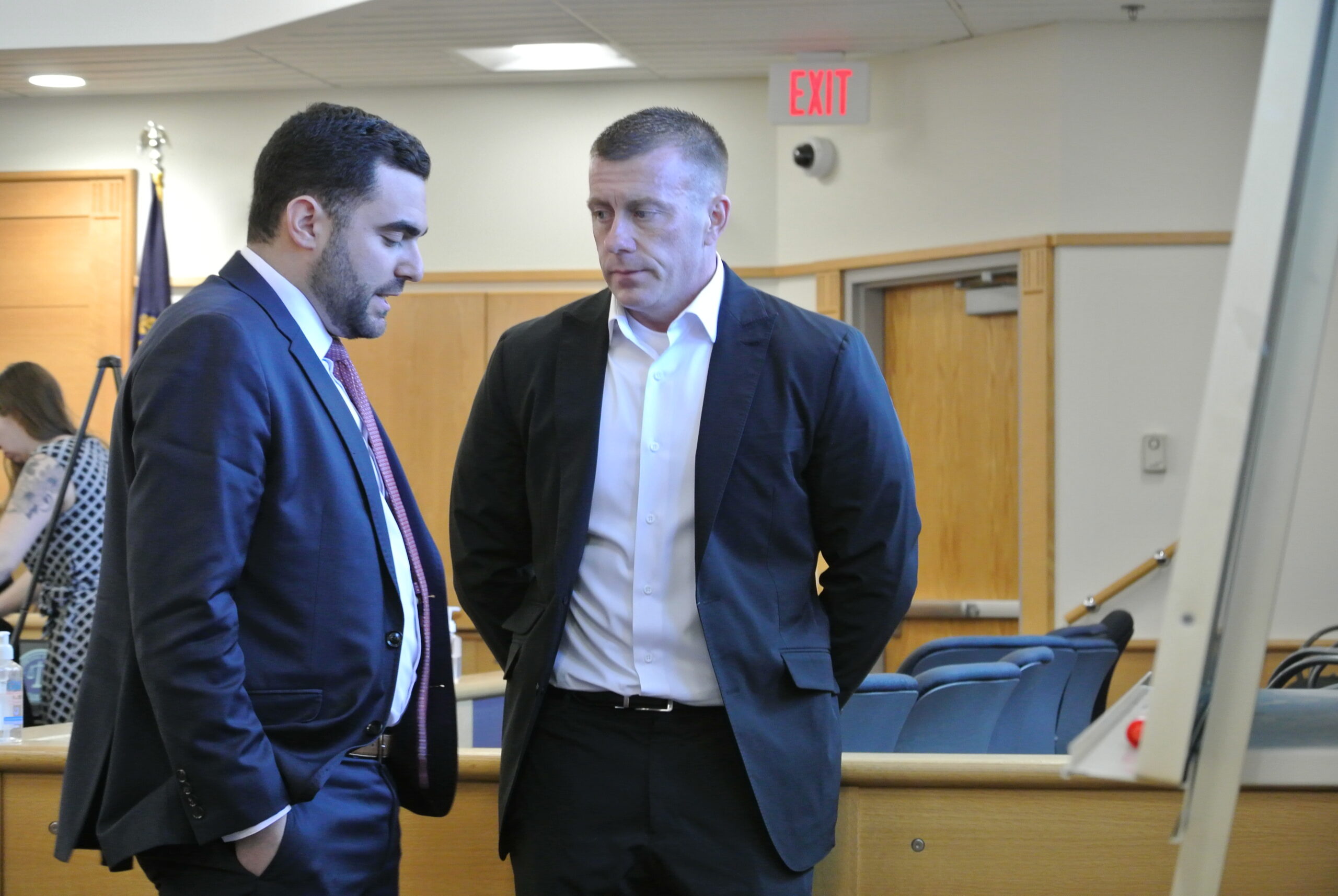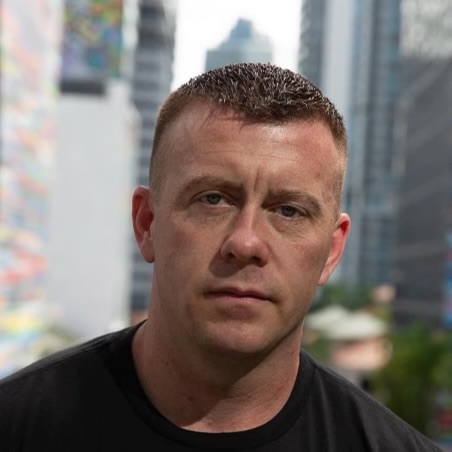Former GOP Rep Loses Defamation Lawsuit Targeting Dem Chair Buckley

It may not have been entirely true when the New Hampshire Democratic Party (NHDP) Chair Ray Buckley told voters former Bedford Rep. Dan Hynes was a convicted felon who had been disbarred, but the jury at last month’s trial in Hillsborough Superior Court-North found it wasn’t totally untrue, either.
Hynes, a Republican who quit his House seat in February over questions about his residency, did not respond to a request for comment about his now-failed defamation lawsuit against the NHDP and Buckley.
The December trial ended with the jury deciding that a 2018 election mailer informing voters about Hynes’ theft conviction was basically true. That’s despite the fact Hynes later had the conviction annulled, which the mailer did not make clear.
The jury also found the mailer’s description of Hynes getting disbarred as a lawyer because of the conviction was false on the facts, but true in its essence. Hynes was never disbarred, but he did have his law license suspended for one year as a result of the 2008 conviction.
Buckley and the NHDP argued Hynes was essentially liable-proof, meaning either his reputation was already so diminished that it could not be further damaged, or that the truth about Hynes is just as damaging as the falsehood.
Hynes lost his 2018 race for state Senate after the NHDP sent more than 6,000 mailers featuring a Hynes photo doctored to look like a police mug shot and alerting voters of his criminal conviction for theft by extortion.
“THE WRONG KIND OF CONVICTIONS. [Hynes] targeted woman-owned businesses for extortion. [He] was charged by Republican Attorney General Kelly Ayotte, convicted by the state of New Hampshire for ‘theft by extortion’ and disbarred,” the mailer stated.
According to court records, Hynes sent a “Cease and Desist/Demand Letter” to Claudia Lambert, Claudia’s Signature Salon owner in Concord, in 2009. Hynes claimed that because Lambert’s salon charged women more money for haircuts than men or children, she was engaging in gender discrimination.
Hynes’ letter demanded that she stop charging women more money and that she pay him $1,000. Lambert’s husband contacted the New Hampshire Attorney General’s Office, and during a sting operation, an investigator witnessed Hynes taking $500 to settle his claim of unfair trade practices. During that meeting, Hynes reportedly said he had sent other letters to other hair salons and was currently in negotiations with these businesses and their attorneys.
The lawsuit was originally dismissed in 2022, but Hynes appealed to the state Supreme Court, which ruled in 2023 that the case ought to go to trial. Under the annulment law, Hynes’ conviction is a fact that is not true, the Supreme Court ruled, unless the subsequent annulment is also acknowledged.
“The fact that [Hynes] was convicted undeniably exists, but as a matter of New Hampshire law, upon annulment, it is false and misleading to fail to state that the conviction was annulled,” the Supreme Court ruled. “In the context of this case, to conclude otherwise could discourage those with annulled criminal records from seeking elective office, a constitutionally protected right.”
But the jury found, it seems, the conviction is true enough.
Hynes abruptly resigned from the House last February. Soon after, it was learned he moved out of the district in late 2023 and rented out his house, but continued to claim his Bedford home as his residence.


